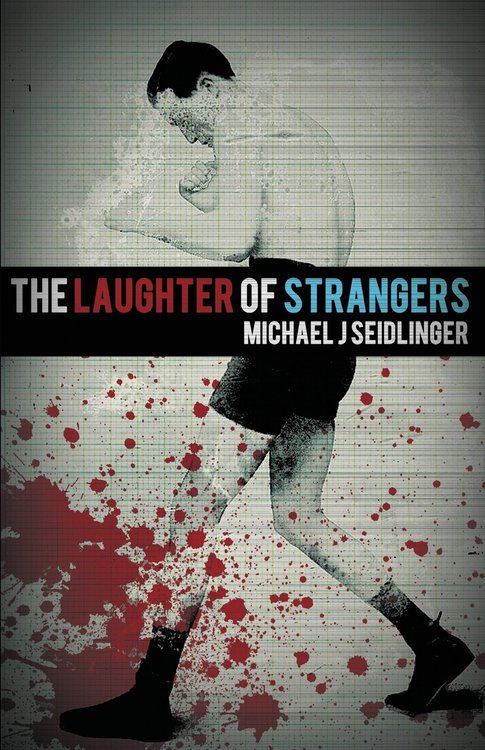
A Review of Michael J Seidlinger’s The Laughter of Strangers
True story: A young PhD student decides on a whim to write the New York Times in response to an article. To her surprise, the message is published as a letter to the editor and quickly becomes the number one search result for her name online. Embarrassed by the language and tone of the letter which she never expected to be published, she decides to game the search algorithm and repeatedly click on lower-ranked search results for her name. The stratagem works, and eventually the Times letter gets bumped down. The PhD student, essentially, played the game of personal branding, silencing alternative voices that could have been seen as her brand.
Is this how you win at the game of personal branding? The tactics for displaying a personal brand online are numerous, but only some are successful. The rest, you might say, make it into Michael J Seidlinger’s The Laughter of Strangers.
Seidlinger’s main character is celebrity boxer Willem “Sugar” Floures, a man with numerous professional opponents who all boast colorful and varied aliases: Black Mamba, Executioner, Storm, Jersey Devil, Kid Perfect. Yet as we proceed through the novel, we realize that these alleged opponents all share the same real name: Willem Floures—the same as the narrator. The play on identity leaves readers to arrive at their own interpretation: do the opponents really exist? Is Sugar hallucinating? At the same time, whether they exist or not, the reader becomes aware that they represent multiple facets of Floures’s identity.
In this treatment of repeating identities, the novel serves to advance the debate on philosophical concepts of lightness and heaviness taken up by Friederich Nietschze and Milan Kundera over the past 130 years. Nietzche, in Thus Spoke Zarathustra published between 1883 and 1885, wrote that the concept of “heaviness” or “eternal recurrence” leads to the most elevated state of being. Heaviness posits that our actions are repeated infinitely across existence, and therefore each action has infinite repercussions. There is the possibility, according to Nietzche, that accepting this reality leads us to take our actions more seriously and brings us to a higher plane of existence. Kundera’s lightness, on the other hand, posits the opposite: we live only once, and our actions are therefore light and unburdened. Kundera is ambiguous about the benefits of lightness his 1984 novel The Unbearable Lightness of Being, pairing “lightness” with “unbearable.”
If it is possible to take the concepts of lightness and heaviness further, Michael J Seidlinger (who styles his name with no punctuation after the “J”) has done so. The opponents of boxer Willem Floures are, in essence, himself, endlessly repeating. This is heavy....
You have reached your article limit
Sign up for a digital subscription and continue reading all new issues, plus our entire archives, for just $1.50/month.
Already a subscriber? Sign in




